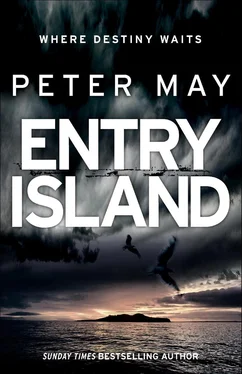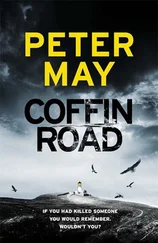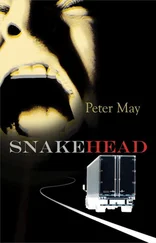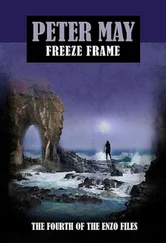It is the first time I have heard any of this, and I feel a growing sense of outrage.
‘The government wanted to destroy the old clan system, so there could never be another uprising. They bribed some of the old clan chiefs, and sold off the estates of others to wealthy Lowlanders and Englishmen. And the new breed of lairds, like Guthrie, and Matheson, and Gordon of Clunie, wanted the people off their land. You see, sheep are more profitable than people, son.’
‘Sheep?’
‘Aye, they want to turn over all the land to sheep.’
‘But how can they do that?’
My father’s laugh was full of bitterness and no humour at all. ‘The landowners can do what they like, boy. They have the law on their side.’
I shake my head. ‘But... how?’
‘Because the law is made to keep the powerful in power, and the rich wealthy. As well as the poor in poverty. Tenants like us can barely survive on what we produce on our crofts. Well, you know that! But it doesn’t stop us having to pay rent, even though we have no money. So the landlords issue notices of eviction. If we can’t pay up we get thrown off. Burned out of our homes so we can’t go back to them. Forced on to boats and sent off across the sea to Canada and America. That way they’re rid of us once and for all. The bastards even pay our passage. Some of them. They must reckon it’s cheap at the price.’
I find it hard to take in everything my father is saying. I am bewildered. I had always thought that Baile Mhanais and everything I know here would be for ever. ‘But what if you don’t want to go?’
‘Pfah!’ My father’s contempt explodes from his mouth like spittle. ‘You don’t have any choice, son. Your life is not your own. Like I’ve told you before, the laird owns the land and everything on it. And that includes us.’ He removes his cap to sweep his hair back from his forehead before pulling it back on again. ‘Even under the old clan chiefs. If they wanted us to go and fight in whatever war they’d given their support to, we had to drop everything and march off to battle. Give them our lives. Even if it was for some bloody cause that meant nothing to us.’
More shouts from below draw our attention.
‘Jesus,’ my father almost whispers. ‘The poor buggers are jumping off the ship now.’
We crawl a little further around the rock to get a better view, and I see two men in the water, and a third jumping from the deck of the tall ship after them. The rowing boat is halfway between the ship and the shore, and laden with another load of villagers. So it can’t go after them.
The men who have jumped ship strike out for shore, swimming for their lives. But the water is choppy in the wind, and icy cold. I see one of the men struggling now, splashing frantically, before he vanishes beneath the surface. And he is gone, and doesn’t reappear. I find it hard to believe I am lying here on the hillside, not half an hour from my own home, watching a man drown in the loch as hundreds of people look on.
A quiet, slow-burning anger takes root inside of me. ‘Are you telling me it’s our own laird, Sir John Guthrie, who’s doing this?’ I say.
‘Aye, son, it is. He’s been clearing villages all up the west coast this last year.’ He turns to look at me. ‘I reckon if it wasn’t for you saving his daughter’s life all those years ago, Baile Mhanais would have been long gone, too.’
The two others who jumped ship reach shore below us. One of them can barely stand, and is easy prey for the group of half a dozen constables who detach themselves from the rest and run around the loch’s edge. They are on him in a moment, batons rising and falling in the rain, beating him to the ground.
The other is a bigger man, stronger, and he strikes off up the hill, setting a course almost directly for where we lie hidden by the rocks.
‘My God,’ I hear my father gasp. ‘That’s Seoras Mackay. A fine man.’ And he turns towards me, fear in his eyes. ‘For Heaven’s sake, son, hide yourself! They’re coming this way.’
I don’t see where it is my father goes, but in a moment of blind panic I roll through the icy waters of the burn and conceal myself beneath a bank of overhanging ferns. Half of me is still in the water, my nose filled with the smell of damp earth and rotting vegetation, and my teeth are chittering with the cold. I can feel the pounding of feet vibrating through the ground beneath me and then, getting closer, the harsh rasp of lungs desperately gasping for breath.
Seoras Mackay and his pursuers are almost right on top of me when they catch up with him and bring him crashing to the ground. The earth shakes with the weight of the big man, and all the air is forced from his lungs. His face is on a level with mine, no more than eighteen inches away. He looks at me through the ferns. For a moment it seems to me as if those sad brown eyes of his are appealing to me for help. But then they are clouded by resignation as he suffers several blows from the batons of the constables. One of them kneels on his back, pulling his arms behind him, and his wrists and ankles are locked in irons. I hear the dull, brutal clank of metal chains, and he is hauled to his feet to be dragged off back down the hill. Eye contact broken and lost for ever, like Seoras himself.
There is more bad weather on the way. I can see it gathering far out at sea. Behind me the sun sprays yellow light across a fractured landscape, and the wind blows strong enough to knock you off your feet if you don’t have them planted right. The tormentil and bog cotton are flattened by it, and I can hear it howling through the standing stones beyond the ridge of the hollow above my head. Even in the shelter of the hollow itself, the tough, spiky beach grasses that bind the sand bend and fibrillate, almost singing in the wind.
I am crouched on a stone, and might be carved out of the same gneiss myself. I don’t feel the cold. It would be difficult to be colder on the outside than I am within. I stare out at the whitecaps blowing in ahead of the coming storm, and feel waves of icy emotion breaking over me.
‘Hi.’ Kirsty’s voice rises above the roar of the wind and the sea as she jumps down smiling into the hollow to join me. I can hear the happiness in her voice, and I try not to let it affect me. She stoops to kiss my cheek and I turn my head away to avoid it.
I feel her tension immediately. She stands up straight. ‘What’s wrong?’
‘Your father’s what’s wrong.’
I don’t look at her, but I can hear the immediate anger in her voice. ‘What do you mean?’
I stand up and turn to face her. ‘Do you know what he’s doing?’ She just stares back at me, her face a mask of confusion. ‘He’s forcing people out of their homes and setting their houses on fire so that they can’t come back.’
‘He is not!’
‘And he sends constables and estate workers to force them on to boats to sail them off across the Atlantic against their will.’
‘Stop it! That’s not true.’
‘It is.’ I feel my own anger fired by hers. ‘I’ve seen it with my own eyes. Folk I know beaten and kicked. Neighbours at Sgagarstaigh, kids I was at school with, made to leave the houses they were born in, and forced to watch as the bastards set them on fire. I saw them ferried out to a boat in the loch and put in chains if they tried to escape. Just ordinary folk, Ciorstaidh. Folk whose ancestors have lived here for generations. Folk whose parents and grandparents are buried here on the machair. Forced to leave it all and sent off to some godforsaken place on the other side of the world, just because your father wants to put sheep on the land.’
I see the shock on Kirsty’s face. Her hurt and bewilderment, her desperate desire for it not to be true. ‘I don’t believe you!’ she shouts in my face, giving voice to that desire, but I have no doubt, too, that she can see in my face that it is.
Читать дальше












